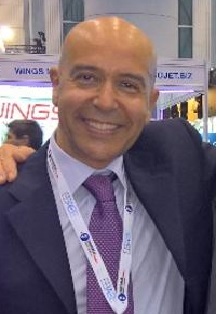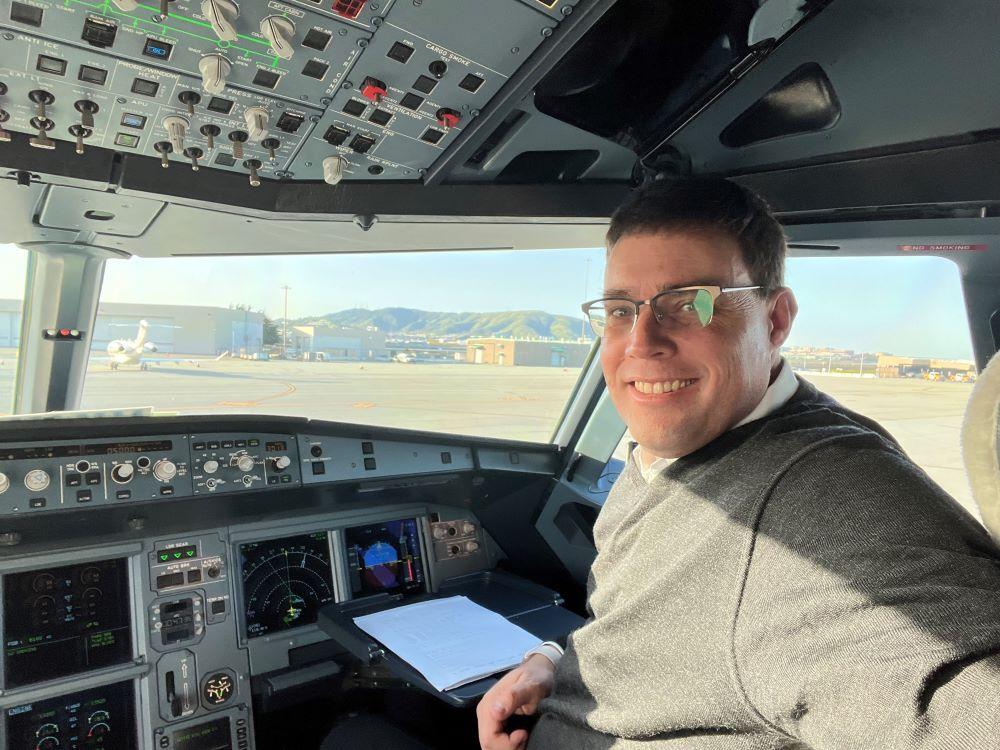McKinseys AAM Chief Robin Riedel Joins Metropolis Tech
Details
More Products & Services
Products & Services
Home - Aviation Group Marketing
Aviation Week Network
120 data points on over 156,000 commercial and business aviation aircraft, including military transports. Discover the most trustworthy resource for the complete aircraft history, plus ad hoc reports, month-over-month trend analysis and details on expected deliveries through 2050.
Aerospace | Aviation Week Network
Aviation Week Network
https://aviationweek.com/themes/custom/particle/dist/app-drupal/assets/awn-logo.svg
People

Andrea Rossi Prudente
Aviation Week Network

Anthony Lim
Aviation Week Network
Sales director

Becca Balmes
Aviation Week Network

Belinda Tan
Aviation Week Network

Brian Everstine
Aviation Week Network
Editor

Eddie Krankowski
Aviation Week Network
Assistant Manager, Tradeshows

erving dockery
Aviation Week Network

Lisa Tan
Aviation Week Network
Senior Marketing Manager

Mark Thomas
Aviation Week Network
Description
Longtime McKinsey analyst Robin Riedel, considered a major thought leader in the burgeoning advanced air mobility (AAM) scene, has accepted an offer to join Metropolis Technologies, a growth company that aims to reduce friction in the physical world through computer vision and artificial intelligence (AI) tech.
A self-described aviation geek who studied aerospace engineering at the Massachusetts Institute of Technology, Riedel cultivated a keen interest in electric aviation, air taxis and drones during his 15-year tenure at McKinsey. Now, he says he plans to use his passion for disruptive aviation tech in his new role as Metropolis Tech's executive vice president for transformation and future mobility.
Founded in 2017, Metropolis uses AI, computer vision and software to streamline processes and reduce friction across a range of industries, beginning with parking garages, which has emerged as its first major use case. Although the vision technology is not yet used in all of them, Metropolis currently operates more than 4,600 facilities across North America—including 75 airports. With these processes, customers can drive in and out of garages without the need for paper tickets. This is made possible by computer vision and a mobile app to manage parking and payment.
Parking is just one of many potential use cases that Riedel sees ripe for disruption. As an aviation enthusiast, he says he is particularly eager to begin tackling friction points across the airport experience, ranging from baggage to security screening, boarding and more. Metropolis has so far rolled out its computer vision and AI technology at numerous airports including Dayton International in Ohio, Northwest Arkansas National and San Antonio International, among others.
Last year, Metropolis acquired SP+, which was one of the largest parking providers in the U.S., and also had a major airport presence. As part of that acquisition, Metropolis also acquired Bags, a provider of baggage solutions for the aviation industry.
“I personally think the aviation use case is going to expand much further,” Riedel says. “I think what we're seeing with TSA using facial recognition and biometrics, or using those things for lounge access or boarding, is really about removing friction from the trip and from mobility more broadly.”
In his first 90 days, Riedel said a major priority is trying to create a road map to understand the areas in which airports could benefit from adopting machine vision technology.
“With the introduction of eVTOLs, we can use this technology to make it easier to get on board, or facilitate the process for a vertiport,” he says. “There are so many areas in aviation–both legacy and AAM–where we can remove those pain points and sources of friction that can be such a hassle for travelers as well as operators.”
While Riedel will be spending less time on AAM in his new role, he said he plans to remain involved in the industry and may even consider picking up advisory roles or board seats if the opportunity arises.And reflecting on his experience tracking the development of the nascent industry, he says he remains “bullish” on eVTOLs and commercial drones, despite some early hiccups like startup failures and timeline delays.
“If you look at the SPAC [Special Purpose Acquisition Company] space from a few years ago, I think eVTOL is the industry that is still on the path of delivering what they promised,” Riedel said. “We have $30 billion invested in this industry, Chinese players are already certified, and a couple of Western companies are on the cusp of getting there. I think it's worthwhile to reflect on that accomplishment.”
Looking back on his experience tracking the development of the AAM industry, Riedel says he is encouraged by the pace of development across eVTOLs and commercial drones, despite some early hiccups like startup failures and timeline delays.
“Yes, it's taking a little longer than we hoped, and some companies have failed, and that's to be expected,” he says. “But I think we're seeing an industry truly emerging. I think it's here to stay, and I'm still very bullish on this industry overall.”
A self-described aviation geek who studied aerospace engineering at the Massachusetts Institute of Technology, Riedel cultivated a keen interest in electric aviation, air taxis and drones during his 15-year tenure at McKinsey. Now, he says he plans to use his passion for disruptive aviation tech in his new role as Metropolis Tech's executive vice president for transformation and future mobility.
Founded in 2017, Metropolis uses AI, computer vision and software to streamline processes and reduce friction across a range of industries, beginning with parking garages, which has emerged as its first major use case. Although the vision technology is not yet used in all of them, Metropolis currently operates more than 4,600 facilities across North America—including 75 airports. With these processes, customers can drive in and out of garages without the need for paper tickets. This is made possible by computer vision and a mobile app to manage parking and payment.
Parking is just one of many potential use cases that Riedel sees ripe for disruption. As an aviation enthusiast, he says he is particularly eager to begin tackling friction points across the airport experience, ranging from baggage to security screening, boarding and more. Metropolis has so far rolled out its computer vision and AI technology at numerous airports including Dayton International in Ohio, Northwest Arkansas National and San Antonio International, among others.
Last year, Metropolis acquired SP+, which was one of the largest parking providers in the U.S., and also had a major airport presence. As part of that acquisition, Metropolis also acquired Bags, a provider of baggage solutions for the aviation industry.
“I personally think the aviation use case is going to expand much further,” Riedel says. “I think what we're seeing with TSA using facial recognition and biometrics, or using those things for lounge access or boarding, is really about removing friction from the trip and from mobility more broadly.”
In his first 90 days, Riedel said a major priority is trying to create a road map to understand the areas in which airports could benefit from adopting machine vision technology.
“With the introduction of eVTOLs, we can use this technology to make it easier to get on board, or facilitate the process for a vertiport,” he says. “There are so many areas in aviation–both legacy and AAM–where we can remove those pain points and sources of friction that can be such a hassle for travelers as well as operators.”
While Riedel will be spending less time on AAM in his new role, he said he plans to remain involved in the industry and may even consider picking up advisory roles or board seats if the opportunity arises.And reflecting on his experience tracking the development of the nascent industry, he says he remains “bullish” on eVTOLs and commercial drones, despite some early hiccups like startup failures and timeline delays.
“If you look at the SPAC [Special Purpose Acquisition Company] space from a few years ago, I think eVTOL is the industry that is still on the path of delivering what they promised,” Riedel said. “We have $30 billion invested in this industry, Chinese players are already certified, and a couple of Western companies are on the cusp of getting there. I think it's worthwhile to reflect on that accomplishment.”
Looking back on his experience tracking the development of the AAM industry, Riedel says he is encouraged by the pace of development across eVTOLs and commercial drones, despite some early hiccups like startup failures and timeline delays.
“Yes, it's taking a little longer than we hoped, and some companies have failed, and that's to be expected,” he says. “But I think we're seeing an industry truly emerging. I think it's here to stay, and I'm still very bullish on this industry overall.”

Share
Recent Chats
Share via email
Future: handle WhatsApp here
Future: handle LinkedIn here
Future: handle Twitter here
SUBMENU HERE
Share via Chat
Copy Link

